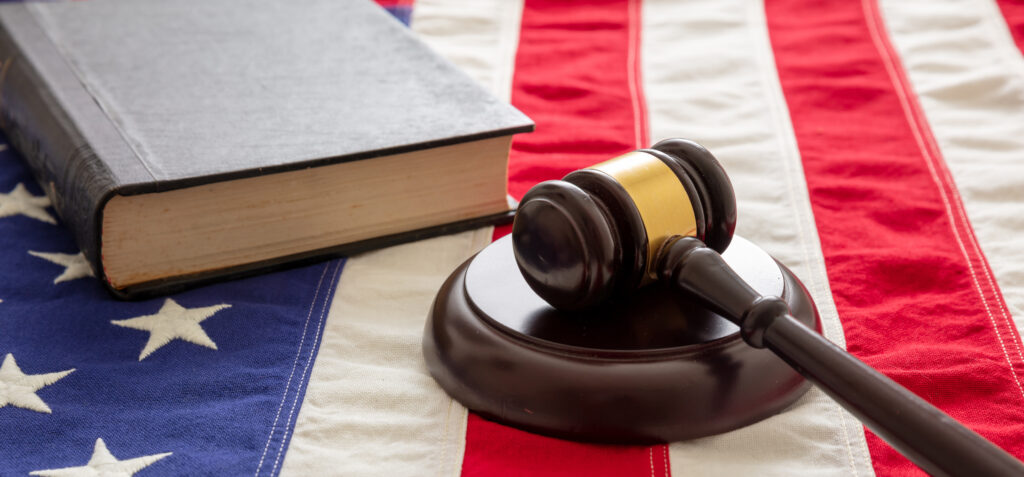In the ongoing legal dispute surrounding Timothy Barton, the Ridgeview Addition has become a contentious point of debate. This valuable property, which Barton’s team argues was wrongfully placed under Receivership, is at the center of concerns over property rights, constitutional protections, and the legitimacy of the Receiver’s claims. At issue are the assertions by the Receiver that “Wall lender Funds” were traced into the property, justifying its inclusion in the Receivership. However, Barton’s defense challenges this claim, asserting that no evidence supports the Receiver’s position, and that the seizure of Ridgeview Addition constitutes a violation of due process.
The defense contends that the Receiver’s actions lack a solid legal foundation, as the alleged tracing of funds into the Ridgeview Addition has not been substantiated with concrete evidence. This raises significant questions about the validity of the Receivership’s claims and the potential infringement on Barton’s constitutional property rights. The case highlights the critical importance of due process and the protection of property rights in legal proceedings, especially when substantial assets are at stake.
For a comprehensive overview of the case and related developments, visit the official Barton Receivership website. Barton Receivership
The Questionable Claim of “Wall lender Funds” Traced to Ridgeview Addition
The Receiver has claimed that funds from the Wall lender were traced to the Ridgeview Property, thereby justifying its inclusion in the Receivership estate. However, Barton’s defense team contends that this assertion is “inaccurate and misleading.” According to the defense, no financial tracing has substantiated the Receiver’s claim, nor has any evidence been presented to prove that Wall lender Funds were involved in Ridgeview Addition’s acquisition or development. This claim raises significant concerns about the legitimacy of the Receiver’s actions, as it directly impacts the fairness of the receivership process.
For additional insights into the case, visit USLegal.com.
The lack of evidence has raised questions about the basis for the property’s seizure. Barton’s team argues that this claim appears to be an attempt to justify bringing Ridgeview Addition under the Receiver’s control, despite no clear legal foundation. The defense emphasizes that property seizures should be backed by factual evidence and transparent legal reasoning, not speculative assertions, especially when they result in significant restrictions on property rights.
A Constitutional Violation of Property Rights
The actions of the Receiver in seizing and attempting to control the Ridgeview Property without due process have led Barton’s team to argue that this constitutes a violation of Barton’s constitutional rights. The U.S. Supreme Court has consistently upheld that property cannot be taken without due process, which includes a fair trial and the right to a jury. Barton’s team asserts that the Receiver’s actions represent an unlawful taking under the guise of Receivership, bypassing essential legal processes that safeguard property owners from undue seizure.
In this case, Barton’s defense argues that the Receivership has overstepped its authority by imposing restrictions on Ridgeview Addition without proper justification. They call for these actions to be corrected to uphold Barton’s constitutional rights, stating that property cannot be taken or controlled without clear evidence, due process, and judicial oversight. This alleged overreach underscores a significant concern about maintaining constitutional protections within Receivership proceedings.

Overstated Claims of Loans, Liens, and Legal Complications
One aspect that Barton’s team finds particularly troubling is the Receiver’s portrayal of Ridgeview Addition as a property burdened with complicated loans, liens, and issues with the City of Venus and Lillian Homes. The defense argues that these claims are exaggerated or fabricated to create a narrative that justifies the Receiver’s interference with the property. By presenting Ridgeview Addition as problematic, the Receiver has been able to impose additional control measures, restricting the property’s management and creating delays in potential sales.
Barton’s legal team asserts that these purported issues are largely overstated, designed to stall proceedings and waste estate resources. They argue that, contrary to the Receiver’s claims, Ridgeview Addition remains a viable property with significant value, and that the alleged complications have been manufactured to justify continued Receivership interference. According to Barton’s team, this approach only serves to devalue the property, impacting both Barton and potential creditors who stand to benefit from a properly managed sale.
The Case for Removing Ridgeview Addition from Receivership
The situation surrounding Ridgeview Addition underscores Barton’s argument that the property should be removed from Receivership, allowing him to manage and sell it without undue interference. Barton’s team contends that the Receiver has failed to demonstrate any legitimate basis for including Ridgeview Addition in the Receivership estate and that the ongoing legal challenges highlight the need to respect Barton’s property rights.
The defense points out that, by continuing to control Ridgeview Addition without a legitimate foundation, the Receiver is restricting Barton’s ability to realize the property’s true market value. They advocate for the court to return Ridgeview Addition to Barton, who can oversee its management and sale, unburdened by Receivership actions they view as unconstitutional and unfounded.
Barton’s defense team advocates for the return of the Ridgeview Addition property, arguing that its reinstatement is essential for Barton to effectively fund his legal defense and protect himself against what they consider malicious prosecution, an issue they claim has persisted since the SEC investigation and Receivership began. Restoring this asset, they argue, is a necessary step in ensuring Barton can defend his rights in this ongoing case.
A Call for Constitutional Adherence and Property Rights
The Ridgeview Addition case has become emblematic of the broader issues within the Receivership proceedings involving Timothy Barton. Barton’s defense argues that the Receiver’s handling of Ridgeview Addition not only undermines property value but also violates the core principles of due process and property rights enshrined in the U.S. Constitution. They believe that the Receiver’s actions represent an overreach that must be addressed to preserve Barton’s rights as a property owner.
As the legal proceedings advance, Barton’s team calls on the court to consider the absence of evidence connecting Ridgeview Addition to Wall lender funds, the exaggerated challenges presented by the Receiver, and the critical constitutional principles involved. The decision on Ridgeview Addition’s status could set a valuable precedent, underscoring the importance of transparency, due process, and evidence-based judgments in property seizures under Receivership. This case, they argue, highlights the need for accountability in actions that affect property rights and individual protections.
For Barton and his defense team, the fight for Ridgeview Addition represents more than just one property—it’s a fight for constitutional rights and fair treatment within the legal system.


